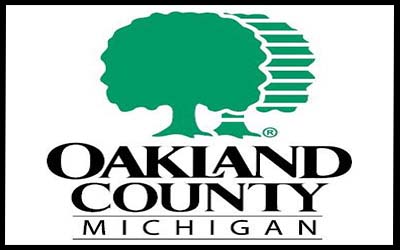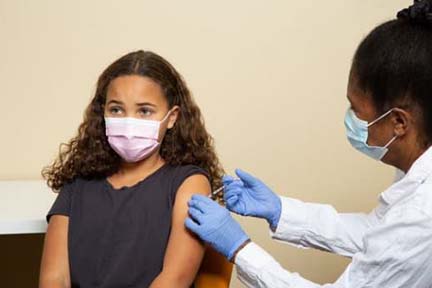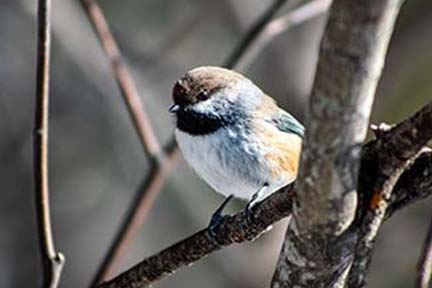
MDHHS will issue face mask advisory for the holiday season
MDHHS will issue face mask advisory for the holiday season due to rise in cases of flu and COVID-19
FOR IMMEDIATE RELEASE: Nov. 19, 2021
CONTACT: Chelsea Wuth, 517-241-2112
LANSING, Mich. – With the increasing rise in COVID-19 and flu cases, the Michigan Department of Health and Human Services (MDHHS) will be issuing a face mask advisory and offering guidance to keep loved ones safe and prevent the spread of respiratory illnesses during the holidays.
MDHHS will issue a Public Health Advisory that recommends everyone over the age of 2 should wear a face mask at indoor gatherings regardless of their vaccination status. In addition, establishments should implement a policy to ensure that all persons entering or seeking services, including employees, wear a mask. This face mask advisory will remain effect until further notice.
“The increases in case counts, percent positivity and hospitalizations have us very concerned,” said Elizabeth Hertel, MDHHS director. “We are issuing the face mask advisory and are looking to Michiganders to do their part to help protect their friends, their families and their communities by wearing a mask in indoor settings and getting vaccinated for COVID-19 and flu as soon as possible if they have not already done so.”
In addition to the MDHHS advisory, the Centers for Disease Control and Prevention (CDC) also issued recommendations for safe gatherings including getting vaccinated, wearing masks, social distancing and washing hands. Mask wearing is considered an effective mitigation strategy and is recommended for all in public indoor settings in areas of high transmission and indoors for those who are not vaccinated. Practice social distancing when possible, especially in places where the vaccination status of those around you is unknown.
“COVID-19 cases are high as we head into the holidays, and we must take every measure we can to keep our families and loved ones safe – which starts with getting vaccinated,” said Dr. Natasha Bagdasarian, chief medical executive. “Safe and effective COVID-19 vaccines are available to children ages 5 and up, and boosters are available for eligible Michiganders. The holidays can be a time to spread great cheer and we recommend taking measures including wearing a mask indoors to not spread COVID-19 to loved ones.”
It is also encouraged to get the flu vaccine which can be administered at the same time as a COVID-19 vaccine. If you or family members are unwell, remain home, get tested and let close contacts know as soon as possible if you test positive for COVID-19. If you are infected with COVID-19, seek treatment with monoclonal antibodies.
Notably, getting vaccinated supports every effort to relieve the burden on Michigan hospitals, where the challenges caused by the continued pandemic response, increases in high acuity, non-COVID patients, overcrowding and understaffing have reached a critical point in areas of the state. Hospitals work to ensure that available supplies and personnel are used efficiently and effectively. Should a facility need to move into crisis standards of care then routine practices are modified, procedures cancelled, resources conserved and items in short supply may be reallocated. The goal of all hospitals is to avoid reaching that level of crisis standards of care.
“What we’re seeing is truly unprecedented,” said Dr. Darryl Elmouchi, president of Spectrum Health West Michigan, who shared that Spectrum Health currently has 370 hospitalized COVID-19 patients – 86% of those patients are unvaccinated. “Our teams are tired but working hard to care for their communities. We’re counting on people to help us by getting vaccinated or getting a booster dose if eligible, wearing masks and being smart about holiday gatherings.”
If you are considering traveling, it is recommended that you be fully vaccinated or delay travel until you are fully vaccinated. A person is considered fully vaccinated two weeks after the completion of their primary vaccination series: two weeks after the second dose for a two-dose mRNA vaccine series or two weeks after a single dose of the Johnson & Johnson vaccine. In addition to getting vaccinated, you should get tested for COVID-19 before and after you travel. If members of your family are unable to be vaccinated, CDC offers safer travel tips including wearing a mask, avoiding crowds and washing hands often.
MDHHS follows CDC guidance in offering the following special considerations for holiday gatherings:
- Immunocompromised people should take all precautions of unvaccinated people, including wearing a well-fitted mask.
- Choose to wear a mask if a member of your household has a weakened immune system, is at increased risk for severe disease or is unvaccinated.
- If you are gathering with groups from multiple households from different areas across the state and country, consider additional precautions like getting tested for COVID-19 to reduce the risk of spreading to loved ones.
To maximize protection from COVID-19 for age-eligible children and adults, get vaccinated as soon as you can. To find a vaccine near you, visit VaccineFinder.org.








 Duquette said maintaining the plethora of wildlife recreation opportunities in Michigan is vital to supporting funding for conservation projects and continued public support for conservation efforts.
Duquette said maintaining the plethora of wildlife recreation opportunities in Michigan is vital to supporting funding for conservation projects and continued public support for conservation efforts.
 Like Stewart, many DNR Wildlife Division staffers got started in wildlife management because they grew up with fond memories of experiences such as watching birds or other wildlife or hunting and trapping with their family and friends.
Like Stewart, many DNR Wildlife Division staffers got started in wildlife management because they grew up with fond memories of experiences such as watching birds or other wildlife or hunting and trapping with their family and friends.
 “Memories associated with cool sightings of birds, elk antler shed hunting and watching ermine hunt, all got me where I am today,” Sitar said. “Once you have an appreciation for a bird or animal the next logical step is an interest in maintaining or improving their habitat.
“Memories associated with cool sightings of birds, elk antler shed hunting and watching ermine hunt, all got me where I am today,” Sitar said. “Once you have an appreciation for a bird or animal the next logical step is an interest in maintaining or improving their habitat.
 “Getting people into the outdoors to experience wildlife in some manner is essential to maintaining and increasing the number of people who are stewards of wildlife conservation,” Duquette said.
“Getting people into the outdoors to experience wildlife in some manner is essential to maintaining and increasing the number of people who are stewards of wildlife conservation,” Duquette said.
 When asked what his favorite wildlife-related activity is, Stewart said picking just one is difficult because it varies from season to season.
When asked what his favorite wildlife-related activity is, Stewart said picking just one is difficult because it varies from season to season.
 And she’s not alone. According to the U.S. Fish and Wildlife survey, of the 86 million wildlife watchers in the United States, 45.1 million people participated in bird watching.
And she’s not alone. According to the U.S. Fish and Wildlife survey, of the 86 million wildlife watchers in the United States, 45.1 million people participated in bird watching.